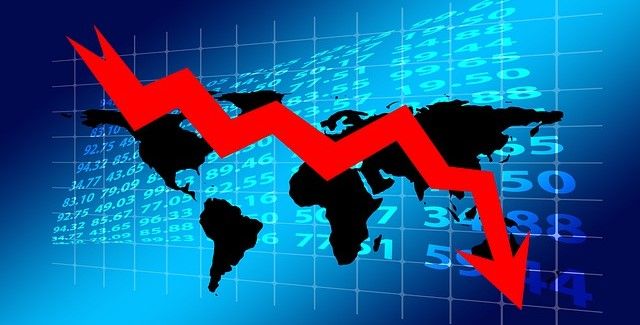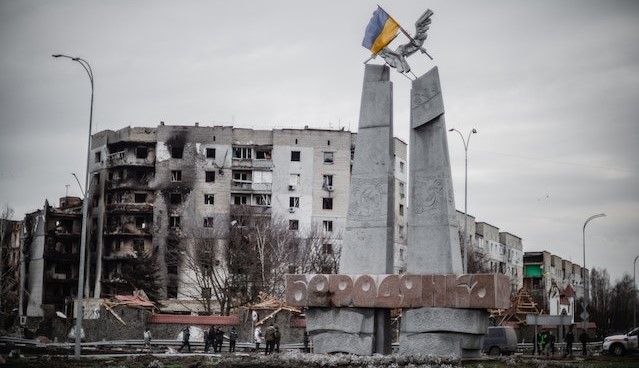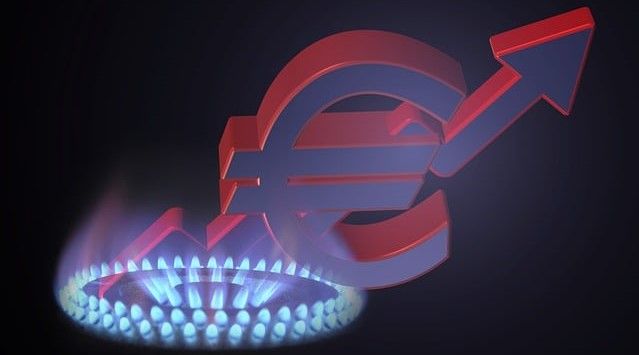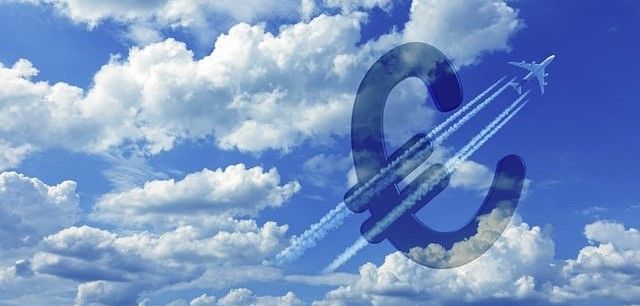The latest reports from both the IMF and the OECD have confirmed that despite Ukrainian success on the battlefield the global economy is still struggling from the effects of Russia’s invasion.
Both reports make grim reading, as the OECD notes that, “With recent indicators taking a turn for the worse, the global economic outlook has darkened.” While the IMF believes that, “The worst is yet to come, and for many people 2023 will feel like a recession.”
Specifically, next year the world economy will expand by only 2.2% (down from 3.1% in 2022) before a more modest recovery in 2024.
While the news of growth may sound positive, it is a highly selective figure, as the economies of both the US and Eurozone are predicted to grow by only 0.5% next year – while the UK economy will shrink by 0.4%.

Instead, the latest data shows that any significant growth in the global economy will be due to activity in major Asian markets, with the Chinese economy predicted to grow by 4.6% in 2023 with the Indian economy growing by 5.7%.
Russian apologists may be expected to blame pandemic lockdowns and imprudent government spending as the cause of the economic turgidity, but the OECD report is quite clear where the fault lies, stating that, “The world economy is paying a high price for Russia’s unprovoked, unjustifiable, and illegal war of aggression against Ukraine.” Adding that, “With the impacts of the COVID-19 pandemic still lingering, the war is dragging down growth and putting additional upward pressure on prices, above all for food and energy. Global GDP stagnated in the second quarter of 2022 and output declined in the G20 economies.”
The situation in Ukraine remains grave for everyone, with the World Bank predicting that their economy will contract by 35% in 2022 but will suffer ongoing repercussions from war debt, scarred land, the destruction of production capacity, and labour shortages caused by the more than 14 million people who are estimated to have been displaced.
Even if the war ended tomorrow, the recovery and reconstruction bill would exceed $349 billion - more than 1.5 times the size of Ukraine’s buoyant 2021 economy.

“Russia’s invasion of Ukraine has triggered one of the biggest human displacement crises and exacted a heavy toll on human and economic life,” explains Anna Bjerde, World Bank Vice President for the Europe and Central Asia region.
Outside of the immediate war zone, the shock to global productivity has been largely over the issue of energy supplies. The OECD report explaining how most economies in Europe and Central Asia are now spending nearly 20% of their economic output on energy, up from only 10% before the war began.
The knock-on effect of high energy prices hurts more than just manufacturing and the heating of households, but also the cost of transportation which in turn harms all trade. Food prices have also risen significantly, causing pain and poverty in even wealthier countries.
With this in mind, the World Bank is advising countries with medium to high reliance on natural gas imports, industry, or electricity, as well as countries closely connected with EU energy markets to “… prepare for gas shortages and put in place emergency plans to mitigate the worst impacts on households and firms, including saving energy, boosting energy efficiency, and implementing quota/rationing plans.”

“The overlapping crises of the war in Ukraine, the ongoing pandemic and the surge in food and fuel prices are painful reminders that governments need to be prepared to manage massive, unexpected shocks that unravel very quickly,” said Ms. Bjerde.
It is a sentiment supported by Mathias Cormann, the OECD’s secretary general who stated that, “Navigating the economy from the current situation to a sustainable recovery will be challenging. Risks remain tilted to the downside, and economic activity may turn out even weaker if energy prices rise further or if energy disruptions affect gas and electricity markets in Europe and Asia.”
At the heart of plans for economic recovery is the problem of runaway inflation which is predicted to peak in 2022 at a ‘blistering’ 9.4%, before cooling slightly next year to 6.4%.
Combating high inflation will be incredibly challenging if food and energy supplies continue to be intermittent. As Álvaro Santos Pereira, the OECD’s acting chief economist notes, “Since energy prices are likely to remain high and volatile for some time, untargeted measures to keep prices down will become increasingly unaffordable, and could discourage the needed energy savings.”

However, having more stable prices is the only way to ease the economic pain that everyone is suffering.
“If inflation is not contained,” states the OECD report, “these problems will only become worse. Thus, fighting inflation has to be our top policy priority right now.”
Yet, while the war drags on in horrendous conditions on the battlefield and continuing power cuts for Ukrainian civilians, the rest of the world must be thankful for peace. For as long as there is war, businesses will fail, economies will struggle, and everyone will be poorer.
As Cormann observes, “An end to the war and a just peace for Ukraine would be the most impactful way to affect the economic outlook.”
Photo credit: Gerd Altmann, FreeImages, Geralt on Pixabay, Gerd Altman, & Алесь Усцінаў on Pexels